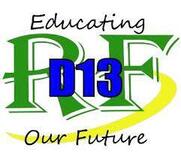Promote Emotional Wellbeing
Satchel Pulse helps students thrive by implementing our suite of tools to improve their interactions with peers and staff, preventing behavior issues before they arise. Join us in this empowering journey, one subskills at a time.
With Skills we compassionately identify and address behavior issues and mental health concerns, empowering students to share their social-emotional insights so we can offer tailored support and track their progress with care.
Learn More

Empowering students to develop social emotional skills enables them to advocate for their life and social skills, understand their emotions, and request assistance, ultimately reducing referrals and allowing staff to focus on teaching behavior support skills.
Learn MoreUse our Coaching service to provide virtual life and social skills lessons to your students, supervised by teachers and led by specialists, resulting in skill growth and application in various areas.
Learn More
